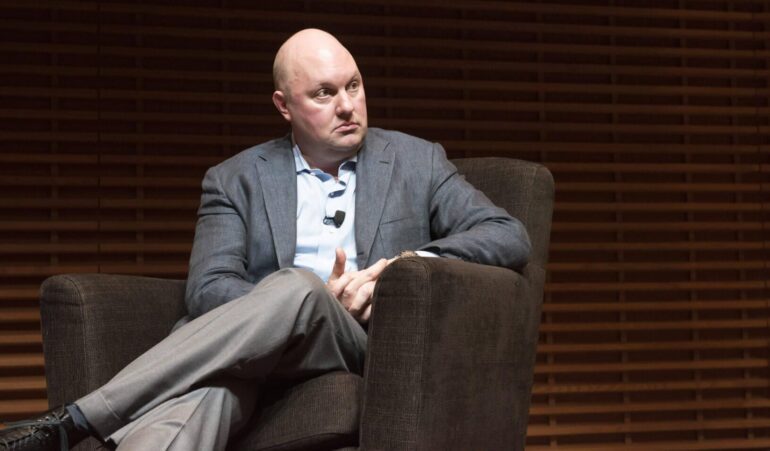TL;DR:
- Marc Andreessen highlights the need for unhampered AI development while cautioning against the formation of a government-protected cartel.
- Major AI companies should be allowed to innovate aggressively, but without regulatory capture or an unfair market advantage.
- Startups should have the freedom to compete with market leaders and not be hindered by government protection or assistance.
- Rapid advancements in AI have sparked calls for regulatory action to avoid potential risks and ensure responsible use.
- Concerns in the entertainment industry revolve around the use of AI-generated content, leading to strikes and debates on high-tech plagiarism.
- Andreessen advocates for proactive collaboration between governments and the private sector to mitigate AI risks in various domains.
- Open-source AI should be embraced to facilitate learning, promote inclusivity, and ensure wider access to technology.
Main AI News:
In a thought-provoking exposé, Marc Andreessen, renowned venture capitalist and co-founder of Andreessen Horowitz, emphasizes the importance of fostering the unrestricted growth of artificial intelligence (AI) while cautioning against the formation of a monopolistic “government-protected cartel.” Andreessen argues that while major AI companies should be allowed to innovate and advance their AI capabilities rapidly, they must not be permitted to exploit regulatory capture or create an impervious market competition shield under the guise of AI risk.
Andreessen believes that enabling unhindered progress in AI development will yield significant benefits for both the technology sector and society as a whole. While Andreessen Horowitz, also known as a16z, has recently gained notoriety for its substantial investments in the cryptocurrency realm, the firm has made significant strides in the field of AI. In a notable move, a16z announced its investment in Character AI, a leading chatbot developer, with Sarah Wang, a general partner at the venture capital firm, assuming a seat on the startup’s board.
The revered venture capitalist asserts that startups should be granted the freedom to compete vigorously against established market leaders, fostering an environment conducive to optimal performance. Andreessen firmly believes that these burgeoning AI companies should neither face government-sanctioned protectionism nor receive any form of governmental assistance, thereby ensuring a level playing field.
The exponential advancements in AI, particularly since the introduction of OpenAI’s groundbreaking ChatGPT in November, have raised concerns among many about the need for regulatory oversight before the technology becomes more prevalent or potentially spirals out of control, potentially posing risks of autonomous AI threats. Just last month, Microsoft President Brad Smith echoed similar sentiments, urging policymakers to accelerate their actions.
The entertainment industry, in particular, has experienced a surge in apprehension regarding the perils of AI. The failure of negotiations between the Writers Guild of America (WGA) members and the Alliance of Motion Picture and Television Producers in May has led to strikes, with one of the key points of contention revolving around the use of AI technology. Creators fear that the technology could be leveraged to generate new content based on their previous works, raising concerns about a new form of high-tech plagiarism.
To counterbalance the potential risks associated with the malicious use of AI, Andreessen advocates for proactive collaboration between governments and the private sector. He suggests that robust engagement in various areas of potential AI-related risks would enhance society’s defensive capabilities. Moreover, Andreessen emphasizes that this level of engagement should extend to critical domains such as healthcare and climate, emphasizing the need for a comprehensive approach.
Within the thread, Andreessen champions the adoption of open-source AI, firmly advocating against any restrictions that might impede access to this transformative technology. He highlights the educational value of open-source AI, offering students worldwide an opportunity to learn and participate in the future of the tech industry. Andreessen envisions a future where AI is accessible to all, transcending financial barriers and backgrounds.
Conclusion:
Marc Andreessen’s stance emphasizes the importance of fostering an environment that allows major AI companies to innovate and compete fairly, while avoiding monopolistic tendencies. Striking a balance between unrestricted AI development and responsible regulation will pave the way for a vibrant and competitive market. Proactive collaboration, particularly between governments and the private sector, is crucial in mitigating risks and harnessing the potential of AI across industries. The promotion of open-source AI fosters inclusivity and offers opportunities for students and individuals worldwide to engage with this transformative technology.

